|
Neilstoun Parochine.
Writers of books pertaining to the
history of any part of the County of Renfrew since 1864, the date of
his work, have been under a debt of gratitude, expressed or
otherwise, to the late David Semple, Esq., Writer, Paisley, for the
labour he devoted to compiling the Poll Tax Roll from the manuscript
Rolls of 1695, which are still extant in the Charter chest of
Paisley, and written in old Saxon characters, applicable to the
shire for that year. Sempleís articles were originally published in
the Glasgow IleraLI, and very few copies are now to the fore. The
writer has been favoured by the loan of what was the compilerís own
copy from which to make the following extract relating to the parish
of Neilston.
The proclamation of King William of Orange and his Queen, Mary, to
the throne of Great Britain, took place at Edinburgh, 11th April,
1689, being two months after their proclamation at London, on 13th
February of the same year; and the Poll Tax had its origin six years
later in the Poll Money Act of the Scottish Parliament for the year
1695. This Act empowered the imposition of a special tax to maintain
the military efficiency of the country. The tax amounted to six
shillings a head on all the inhabitants over sixteen years of age,
only those living by charity being exempted; men who had trades paid
double, whilst merchants and titled persons paid more.
The Poll Tax Roll is therefore an accurate and authentic record of
the names and occupations of all the people in the parish over the
age of sixteen years, and of the places of their residence at the
time, and cannot fail to be of interest to the inhabitants,
especially the older families, in tracing family connections. The
sums charged against the names are in Scots money, which, as we have
already seen, is one-twelfth of money sterling. The following
contractions are used: Yal., valuation; lib., pounds; sh.,
shillings; d., pence; mks. merks; gen., gnall., general; daur.,
daughter; servt., servd., servant; yor., younger; yr., their. Names
occurring in the Roll that refer to the occupation of the people are
: Cordoner, shoemaker; taylior, tailor; oye, grandchild; por.,
portioner; fie, fee.
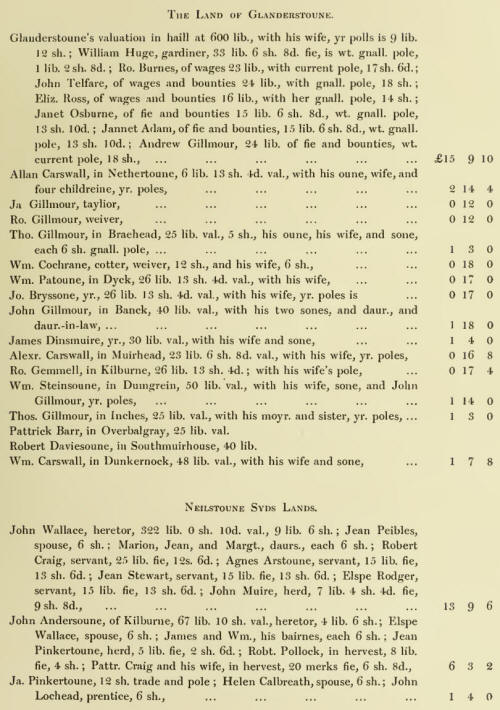
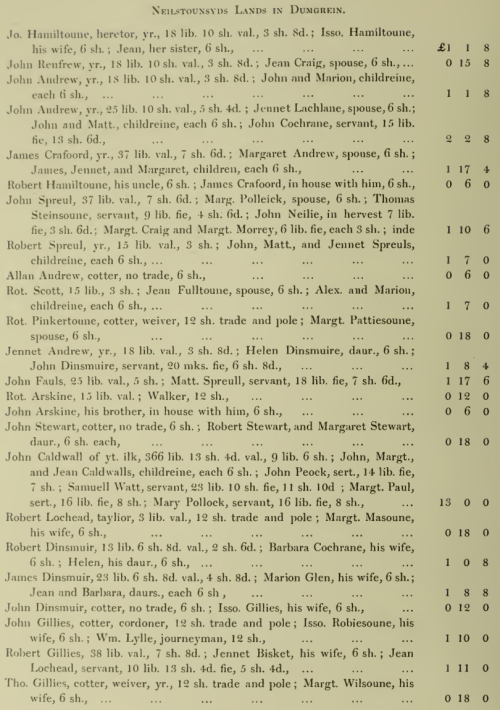
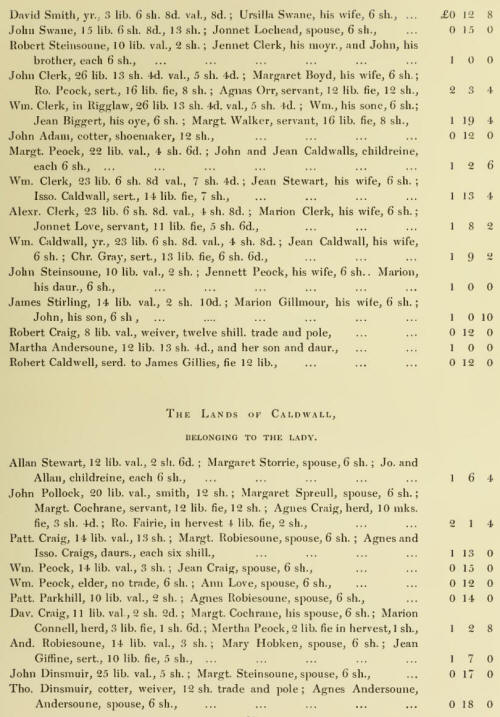
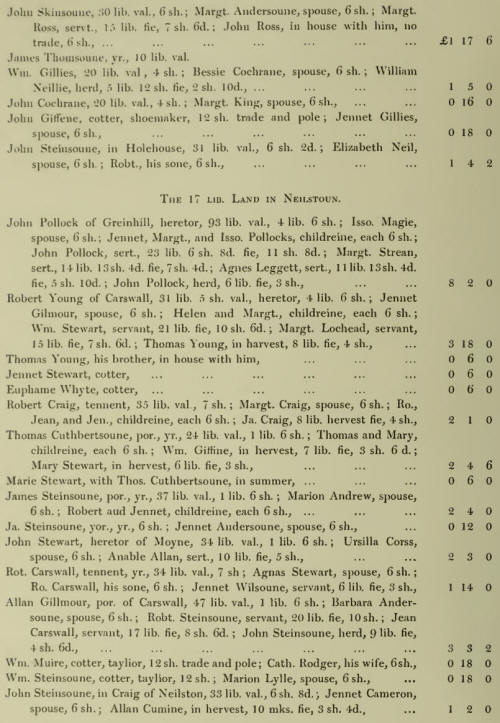
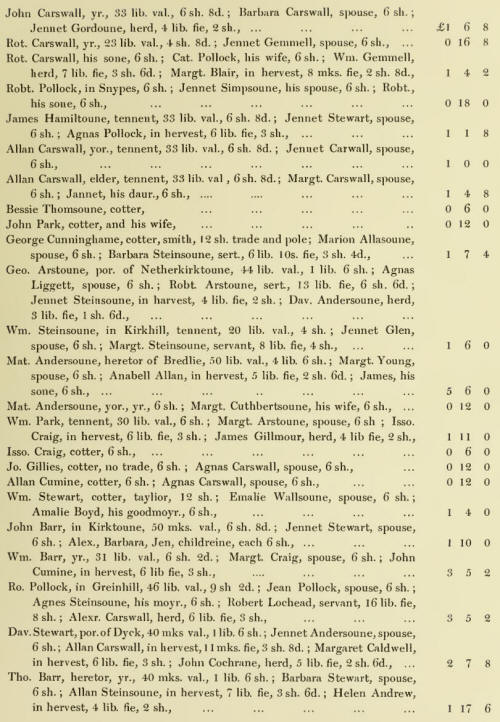
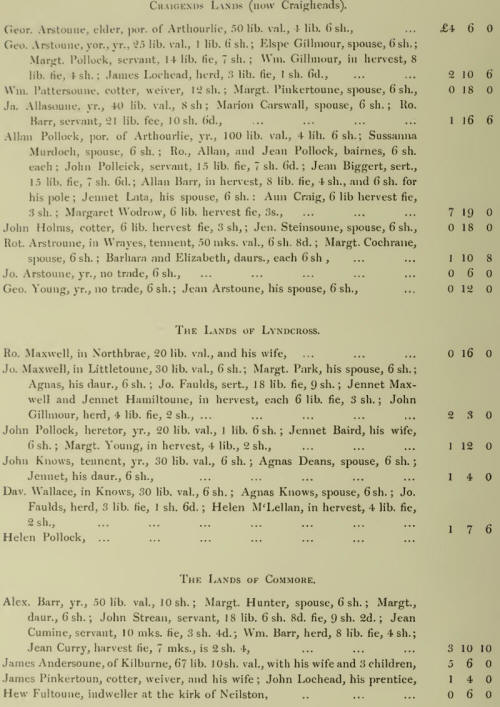
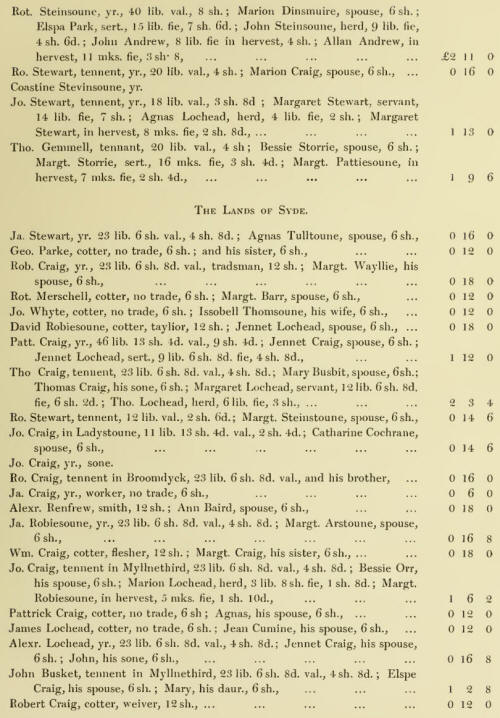
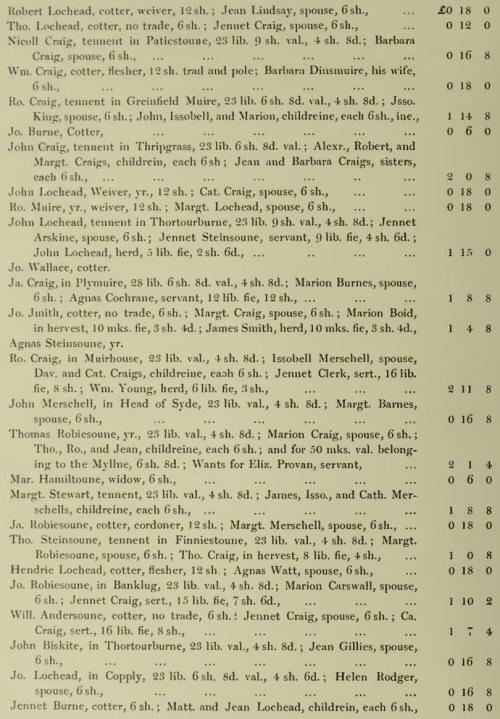
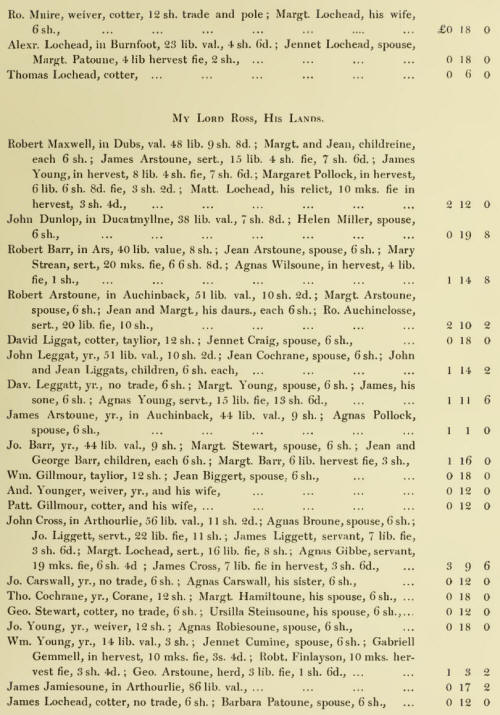
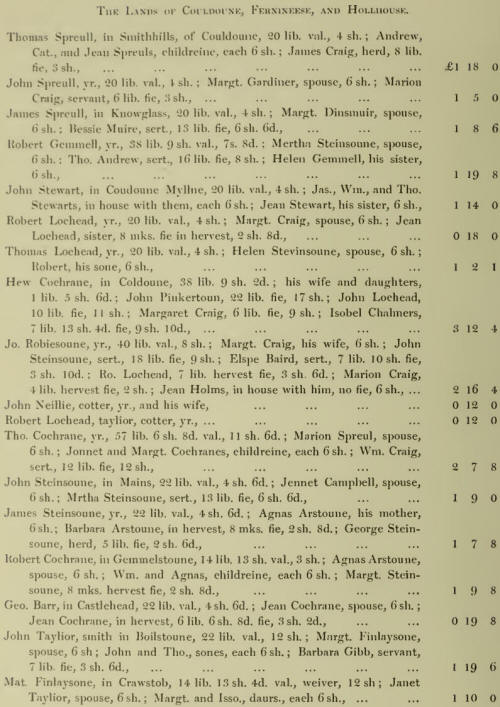
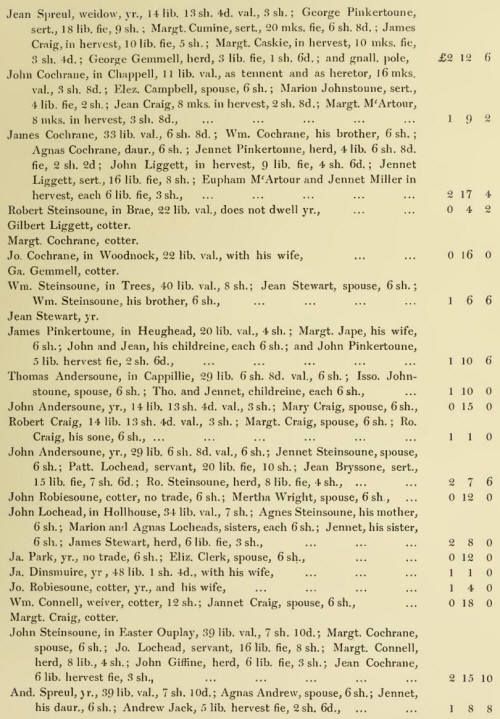
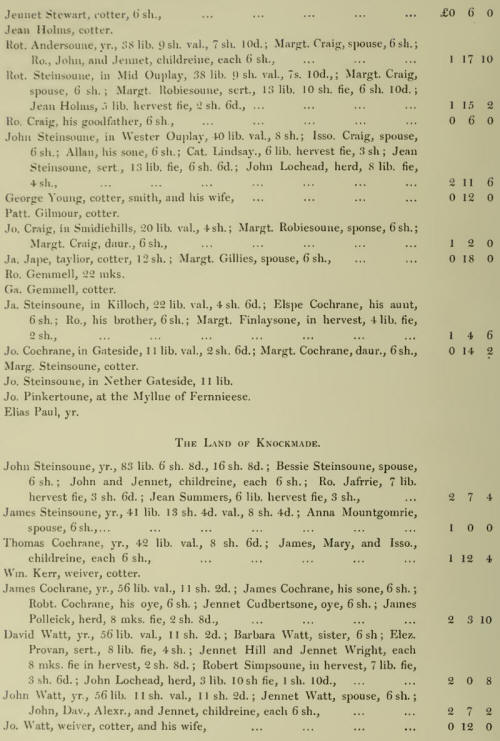
 |

